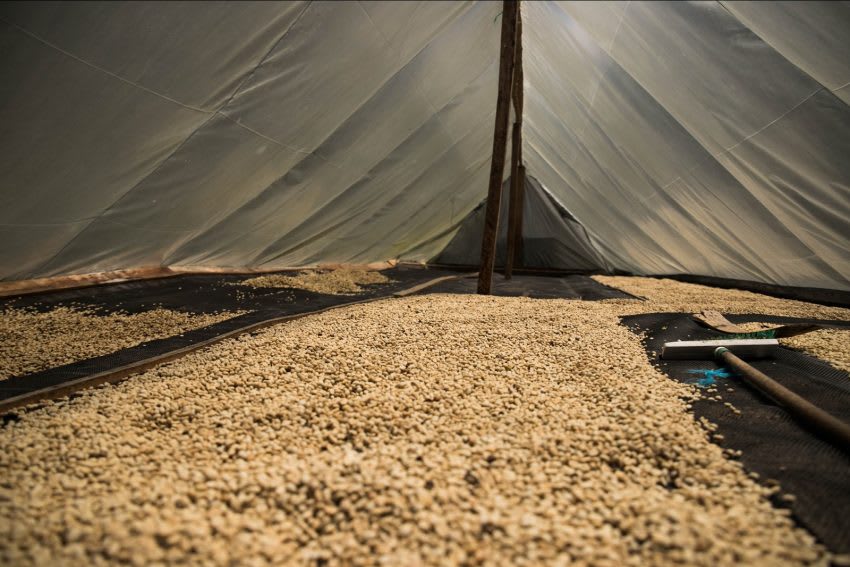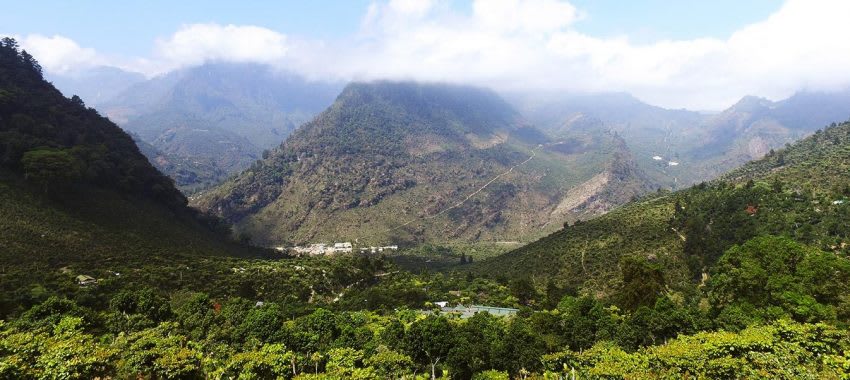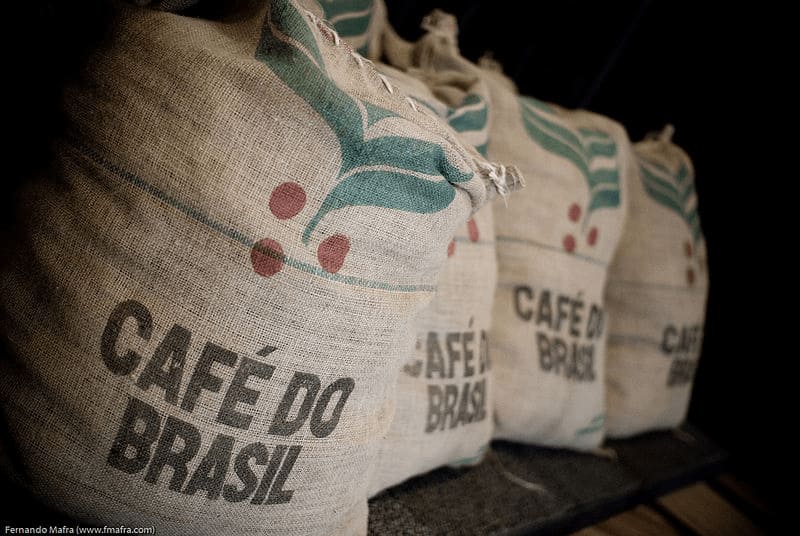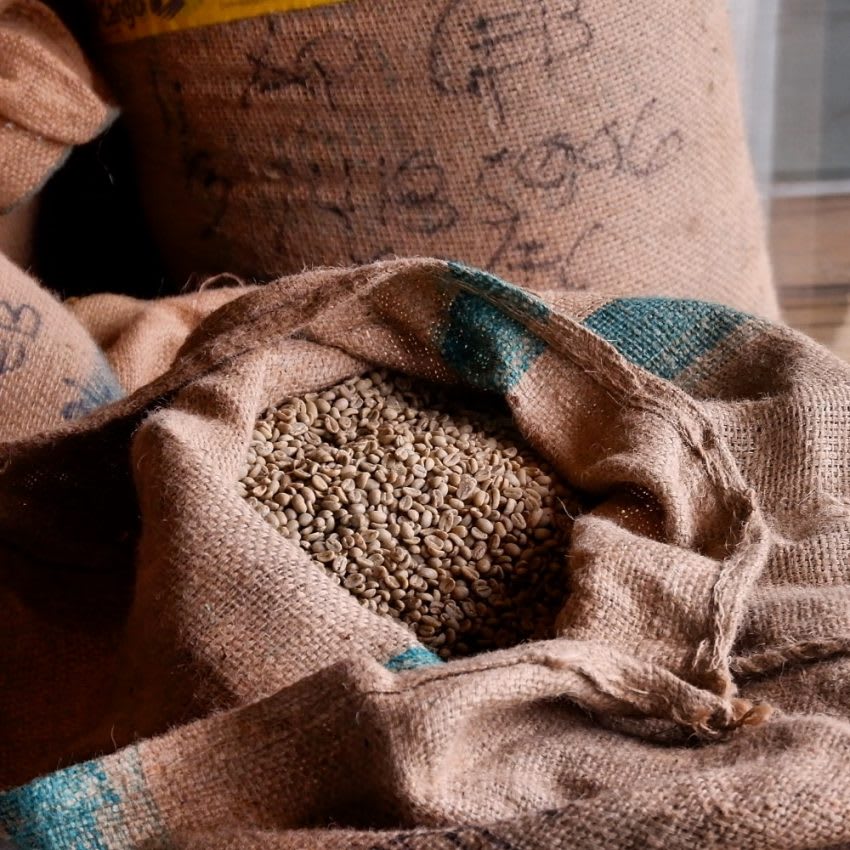A full introduction to the trading model of raw coffee and beans? What are the ways to buy and sell raw coffee beans?
Professional coffee knowledge exchange more coffee bean information please follow the coffee workshop (Wechat official account cafe_style)
Every cup of delicious boutique coffee is the crystallization of a lot of painstaking efforts. Before the baker gets the coffee beans, he needs to know how to manage money, cultivate contacts, and negotiate for a few days.
But what is the trading mode of raw coffee beans? Whether you are a producer, a bean baker or a consumer, you will be able to make a wiser choice if you know more about how it is bought and sold.

Import and export model
Exporters may be independent producers, farmers' cooperatives, or third-party exporters. They trade with importers and sell them directly to bean bakers, but only importers have the connections and capital to buy a large number of beans, so bean bakers usually have to rely on importers to steadily obtain high-quality beans from all over the world.
The importer buys large quantities of beans, puts them in stock and sells them to the baker. If raw beans are bought according to the trading mode of import and export, importers will have a wealth of information about each partner, including their rich season, the types of coffee they grow, and the amount of coffee beans that can be traded at present. If this information is accurate, on the one hand, it can trace the product quality, and on the other hand, it can increase the product credit.

In order to make information transparent and strengthen the relationship between bakers and producers, direct trade has become a trend, but importers can also bring benefits to producers. Because importers are large professional companies, they have enough resources to handle large-scale logistics, cross-border tariffs and similar cumbersome processes, which can be troublesome for bean bakers who plan to trade directly.
The involvement of importers also means a longer supply chain and more people carve up profits, but an increased role is not necessarily a bad thing: direct trade between a single producer and a bean baker seems ideal, but if there are obstacles, multi-party intervention can make goods flow more smoothly.
Some importers are also committed to information transparency and may even introduce bean bakers to cooperative producers.

Direct trade
If the producer sells the raw beans directly to the baker (whether it is a single baker or a coffee cooperative), it is a direct trade. In theory, skipping middlemen and importers makes the information more transparent and makes it easier to trace goods. The buyer can visit the place of origin, evaluate the goods and establish a relationship with the farmers.
Arturo S á enz shared: "Direct trade should depress transaction value, make information more transparent and, if smooth, establish long-term trade relationships." But remember, direct trade also has risks. If there is no intermediary to regulate it, buyers and sellers have to trust each other more in order to make a smooth transaction, and the risk of failing the transaction is higher. Bean bakers and producers should also learn to understand business processes, goods import processes, and logistics.
Ena Galletti shared: "the manufacturer should ensure that the buyer adheres to quality and integrity." Sometimes, in order to establish a long-term relationship with the manufacturer, the buyer has no choice but to risk paying in advance. "

In marketing terminology, the word "direct trade" is also controversial. Sometimes, importers and exporters exclude producers in negotiations, but still boast that their goods are "direct trade".
The use of this label is unregulated, so the true meaning of "direct trade" is sometimes ambiguous and sometimes it is not easy to assess whether producers are making more profits. In theory, excluding the mid-market traders should make more profits on behalf of the producers, but in direct trade, the transaction price of coffee is negotiable and there is no control, and the transaction amount is not necessarily as high as consumers think. It can also be more time-consuming and risky for producers, especially if the baker only wants to buy a small amount of beans.
This does not mean that direct trade is useless, but there are still many producers who benefit from it. But remember it has its pros and cons.
"the meaning of direct trade varies from person to person, and I think we should focus on building a mutually beneficial relationship," Marta said. Its starting point is to give everyone, especially producers, an equal position in the market. "

Understand spot purchase and forward contract
Whether it is direct trade or import and export transaction mode, the baker mainly buys raw beans in two ways: spot purchase and forward contract.
If the baker buys beans from the importer, but there is no prior agreement, it is spot purchase. In other words, it's like buying an on-the-spot ticket. These beans are usually in stock and are about to be delivered.
Buying coffee in this way can be expensive because importers have taken financial risks when buying and storing raw beans, and these costs are reflected in the transaction amount. Because the amount of the transaction may involve the "American coffee price" (C-Price), it may also fluctuate.

If the bean baker buys coffee from a specific manufacturer in advance, it is a forward contract, and the importer may act as an intermediary, or the bean baker may directly match the manufacturer. In this way, in addition to making it easier to trace raw beans, bakers can also feel at ease to get fresh raw beans, which is also more secure for farmers.
Marta Dalton, founder and CEO of Coffee Bird in Guatemala, has said that forward contracts are good for farmers because they reassure them that they don't have to worry about who will buy their coffee.
If manufacturers have forward contracts to protect themselves, it may be easier to cultivate goodwill, or they can plan ahead and invest in infrastructure and equipment, which may improve the quality of their coffee in the long run.

Arturo Aguirre S á enz, the owner of Eincht Manor in Guatemala, has said that placing an order in advance is ideal for both buyers and sellers because producers know how much they will earn, consumers know exactly how much they spend, and have quality-guaranteed coffee for the next few years.
No matter which trading mode it is, communication is very important. "in order for producers to have some dominance in the market, the key is to make them fully understand the rules of the coffee industry and what a sustainable industry is," said Ena Galletti, an Ecuadorian coffee exporter.

"domestic buyers"
In English, there is a word "in-country buyers" for brokers, intermediaries or smugglers who get stuck between producers and buyers and usually buy poor-quality coffee and change hands at ultra-low prices.
The basic job of domestic buyers is to bargain with the producers, so everyone thinks that they only want to make a profit. But coffee farmers have to rely on them in order to get in touch with bean bakers. If producers do not have the necessary connections and lack logistics and legal knowledge, these intermediaries are indispensable in the coffee trade. These intermediaries may also be in cahoots with the manufacturers they work with. This can be said to be a very important role in this trust-based industry based on repeated transactions.

market prediction
At present, the sale of raw beans seems easy to understand, but even if businessmen have no contact with raw beans at all, they may still affect the price of coffee.
Coffee is a traded product, which means it is bought and sold in a regulated market. The transaction price of Arabica beans is C-Price, which affects the purchase price of coffee. Coffee beans are raw materials regardless of origin or other factors, and even the price of boutique coffee (which is of course more expensive) is usually related to C-Price.
"speculators" evaluate the buying and selling price from the product (in this case, coffee). They predict the price the businessman will offer later, and then negotiate the price. Raw beans may always be sealed in the harvest warehouse, and speculators do not intend to "actually own" them at all, but to make a profit from them as a means of trading.
The behavior of speculators affects the mode of operation of the market, and it is also one of the reasons why coffee prices fluctuate easily.

Competitive price
Another channel for the sale of raw beans is open auction, which can attract buyers from all over the world. Bidding gives manufacturers the opportunity to promote their products, build connections through the supply chain, and consolidate the industry and allow buyers to trace products.
In coffee-producing countries in Latin America, buyers are usually able to dig up the best raw beans during bidding, where the market can be effectively analyzed through the bidding system. This system lets people know how much the baker spends on beans and what kind of beans they are looking for, but keep in mind that these raw beans are of high quality, indicating that their prices are above average.

In many coffee-producing countries in Africa, bidding is usually the standard channel for trading raw beans. Producers in these countries usually do not have direct contact with international importers and bakers, so bidding is often their only chance to sell beans. For example, most Kenyan coffee beans have to be bought through the official auction board, but when bidding, only licensed operators can bid, small farmers will not see the buyer, and there is no way to promote their own coffee.

Which is the best way to buy and sell raw beans?
There is no perfect way to trade coffee, and each model has its own advantages and disadvantages and potential risks. "if you are most willing to take the risk of a particular trade, it is the best way to buy coffee," Marta said.
So think carefully about your current situation, consider your budget and resources, and assess which model is right for you in terms of your level of knowledge and your preferred negotiation style. Focus on your goals, build connections, and be bold in buying and selling.
This article was written by Vanessa Bocchi
Translated from Perfect Daily Grind
END
Important Notice :
前街咖啡 FrontStreet Coffee has moved to new addredd:
FrontStreet Coffee Address: 315,Donghua East Road,GuangZhou
Tel:020 38364473
- Prev

The auction price of the best Panamanian raw bean contest broke the record. What are the Rosa coffee beans like?
For more information on coffee beans, please follow the coffee workshop (Wechat official account cafe_style) Rose Summer Coffee (Geisha) was discovered in the rose forest of Ethiopia in 1931 and sent to the Coffee Institute in Kenya. It was introduced to Uganda and Tanzania in 1936, Costa Rica in 1953 and Panama in 1970.
- Next

Costa Rican Shumawa Manor Black Honey Coffee flavour what are the characteristics of Costa Rican coffee
Professional coffee knowledge exchange more coffee bean information please follow the coffee workshop (Wechat official account cafe_style) Costa Rica has seven coffee producing areas, of which Tarazu, the central valley and the western valley are the three best-known and best-quality areas. Finca Sumava de Lourdes is located in the western valley of Costa Rica, near Orange County.
Related
- Detailed explanation of Jadeite planting Land in Panamanian Jadeite Manor introduction to the grading system of Jadeite competitive bidding, Red bid, Green bid and Rose Summer
- Story of Coffee planting in Brenka region of Costa Rica Stonehenge Manor anaerobic heavy honey treatment of flavor mouth
- What's on the barrel of Blue Mountain Coffee beans?
- Can American coffee also pull flowers? How to use hot American style to pull out a good-looking pattern?
- Can you make a cold extract with coffee beans? What is the right proportion for cold-extracted coffee formula?
- Indonesian PWN Gold Mandrine Coffee Origin Features Flavor How to Chong? Mandolin coffee is American.
- A brief introduction to the flavor characteristics of Brazilian yellow bourbon coffee beans
- What is the effect of different water quality on the flavor of cold-extracted coffee? What kind of water is best for brewing coffee?
- Why do you think of Rose Summer whenever you mention Panamanian coffee?
- Introduction to the characteristics of authentic blue mountain coffee bean producing areas? What is the CIB Coffee Authority in Jamaica?

